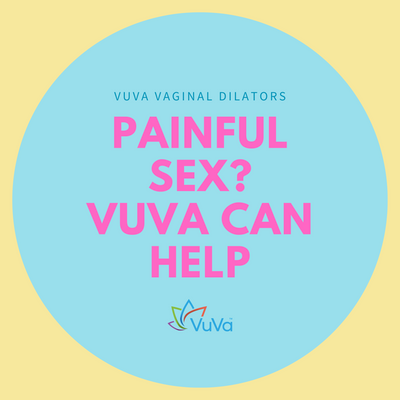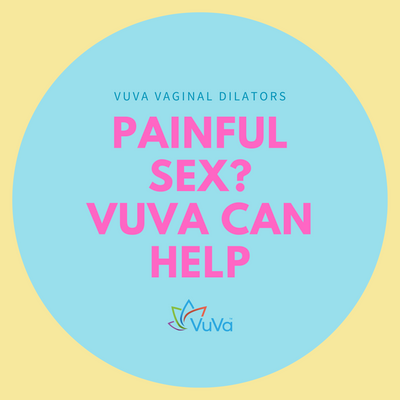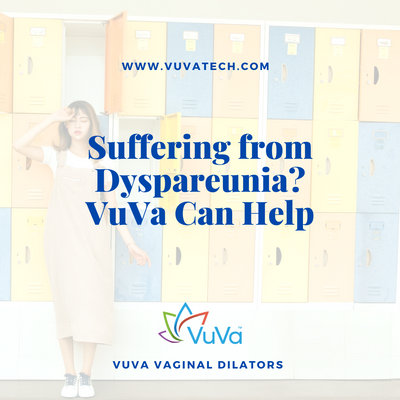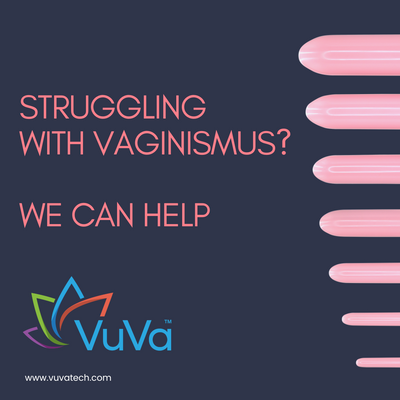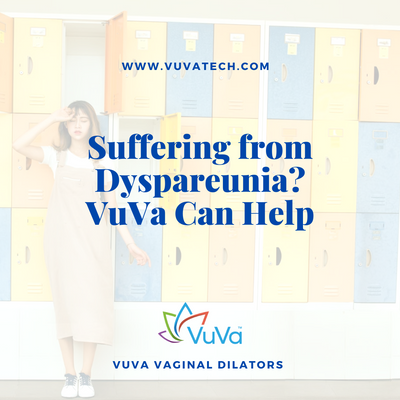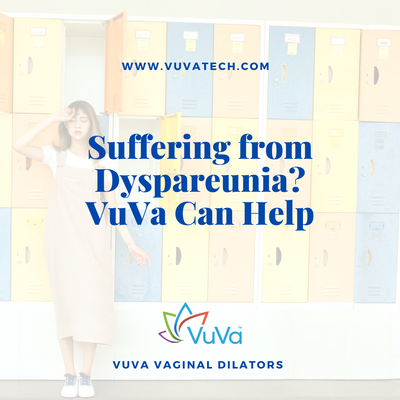
| Tara Langdale
Can Anxiety Cause Vulvodynia?
Women with vulvodynia often live with daily vaginal pain without knowing the exact cause. Chronic vulvar pain has a negative impact on relationships, fertility, and wellbeing. Women suffering from vulvodynia can also experience depression and anxiety. The question becomes, is anxiety causing vulvodynia? While there are different causes for vulvar pain, research shows a connection between anxiety and vulvodynia.
Connection Between Vulvodynia and Anxiety
Women with vulvodynia experience more mental distress according to numerous studies. Yet the exact causal relationship between a vulvodynia diagnosis and a psychiatric disorder, such as anxiety, was unclear for a long time. However, a study published in the Journal of Women's Health showed that women diagnosed with a previous anxiety disorder had an increased risk of developing vulvodynia. (1)
The study made adjustments to account for age, race, education, and age of first sexual activity, and tampon use. Even with these adjustments, the results showed that women with previous anxiety or mood disorders were four times more likely to develop vulvodynia.
It also showed that the development of vulvodynia also increased the risk of developing anxiety and depression. The study demonstrated there is a causal relationship with vulvodynia and anxiety that can’t be ignored.
Vulvodynia and Pain-related Anxiety
Another study published in the Journal of Sexual Medicine showed that 47% of women with provoked vestibulodynia and associated overactive pelvic floor muscle dysfunction (PVD-PFD) experienced pain-related anxiety. (2)
Also, 4% of the women experience depression, and 27% for both depression and anxiety. The findings are consistent with other research articles showing a connection between pain-related stress and other chronic pain conditions, including fibromyalgia and lower back pain.
Fear of Sexual Intimacy
Pain-related anxiety associated with vulvodynia can cause a fear of sexual intercourse. If every time you're intimate brings on the pain syndrome, you may develop an aversion to intimacy over time. 45% of the women in a study conducted by Rutgers Robert Wood Johnson medical school cannot engage in sexual activities due to vulvodynia pain. (3)
By not engaging in sexual intimacy, it harms a woman's self-image. The ongoing pain, combined with the fearing discomfort during sex, may also result in vaginismus (muscle spasms around the vagina). All of which makes sexual penetration impossible and sexual orgasm elusive.
Lowers Quality of Life
The National Vulvodynia Association reports that 65% of women with vulvodynia feel disconnected to their bodies, and 60% state it causes severe problems with enjoying life. All of which can lead to mood and anxiety disorders. The feelings of stress caused by vulvodynia can make daily activities hard to bear. (4)
Women may find it hard to maintain healthy intimate relationships, hold down a job, or even wear specific clothing. Tight clothing and underwear can aggravate vulvar vestibulitis. Some cannot even have a pelvic exam or insert a tampon.
Symptoms of Vulvodynia and Anxiety
The American College of Obstetricians and Gynecologists state that vulvodynia feels like a burning, stinging sensation. It may also feel raw, achy, sore, and inflamed. The pelvic pain may center around a specific area, be constant or come and go without warning. In some cases, it may only be provoked when touched or sitting for long periods. (5)
All of which can begin or lead to feelings of deep unrest, excess worry, restlessness, and fatigue. These symptoms have direct links to anxiety and depression. (6)
Diagnosis of Vulvodynia
Chronic vaginal pain that can't be explained by a medical condition, skin condition, menopause, postpartum healing, or complications means you may have vulvodynia.
The first step is to make an appointment with an experienced healthcare professional. The process usually contains having a vaginal pain assessment on an examination table. The gynecologist or physician gently inserts a cotton swab to place pressure on multiple locations around the vaginal opening.
Certain areas of the vulva may feel painful, and the other regions in your vagina may not. Making contact with specific areas or spots in the vagina that cause female pain can confirm vulvodynia.
Treatments for Vulvodynia and Anxiety
While the causes of vulvodynia may be hard to determine, there are effective treatments to help relieve pain and anxiety. Below are three options that have helped women suffering from vulvodynia and anxiety.
-
Vulvodynia causes chronic tightness and spasms of the pelvic floor muscles. Reaching out to a trained pelvic floor physiotherapist may offer hands-on support that can be an essential part of overcoming vulvodynia and anxiety. Your physical therapist can help you relax your vaginal muscles and less excessive worrying connected to anxiety.
-
If working with a pelvic floor physiotherapist seems overwhelming or not the right answer, you can use vaginal dilators or trainers to ease chronic vulvar pain. VuVa Magnetic Vaginal Dilators have neodymium magnets that help pull fresh, oxygenated blood to the vagina tissue. Vaginal dilators are medical devices that effectively treat vulvodynia in the privacy of your own home and come with no side effects.
- Choose a multidisciplinary approach that combines vaginal dilators and a mental-health trained professional, such as a counselor or therapist. Cognitive-behavioral therapy (CBT) can be useful for treating vulvodynia and anxiety. Vaginal therapy retrains your body, and counseling helps improve cognitive behavior.

VuVa Dilators are available at www.vuvatech.com
Women who suffer from vulvodynia can also experience anxiety. Both conditions have direct connections, according to science. Sometimes you can't find signs of blunt trauma on the vulva or find it hard to receive a diagnosis. However, it doesn't mean that the condition isn't real or painful. Seek vulvodynia treatment with vaginal dilators. You'll be on your way to easing anxiety and leading a life you deserve
- https://www.ncbi.nlm.nih.gov/pmc/articles/PMC3186444/#:~:text=This%20study%20establishes%20that%20DSM,that%20affects%20millions%20of%20women.&text=Moreover%2C%20this%20study%20establishes%20that,recurrent%20mood%20or%20anxiety%20disorder.
- https://www.smoa.jsexmed.org/article/S2050-1161(20)30074-X/fulltext
- https://www.ncbi.nlm.nih.gov/pmc/articles/PMC2746064/
-
https://www.nva.org/media-center/
https://www.acog.org/en/Patient%20Resources/FAQs/Gynecologic%20Problems/Vulvodynia
Healthline.com/health/anxiety-disorder-symptoms
Do you need to order vaginal dilators so you can start your pelvic floor therapy process? Made in the USA. Visit www.vuvatech.com
VuVa Helpful Links:
How do Neodymium Vaginal Dilators work?
7 Reasons for a Tight Vagina and How to Loosen
How to Relax Vaginal Muscles, Vaginismus & Sex
Vaginal Stretching - Keeping in Shape with Dilators
Do Dilators Really Work? Yes, and They can Improve Your Sex Life!
Shop for VuVa Vaginal Dilators
Tara Langdale Schmidt is the inventor of the VuVa Dilator Company. She has pelvic floor dysfunction herself and wanted to create a dilator set that is made in America that women can trust. VuVatech has been in business since 2014 and has helped over 50,000 women all over the globe. She patented the Neodymium Vaginal Dilator, that is clinically proven to help with blood flow and nerve pain.

